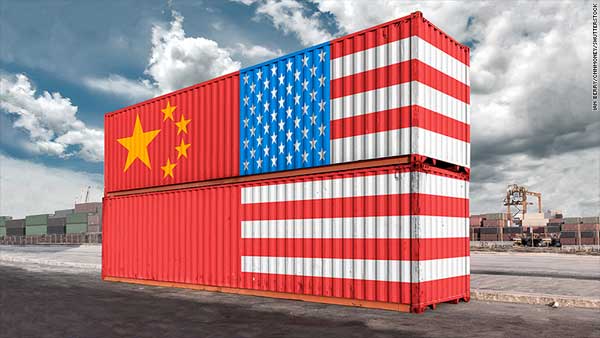
Barbara Hackman Franklin, 29th U.S. Secretary of Commerce, President and CEO of Barbara Franklin Enterprises
Feb 03, 2017
A trade war, such as some are predicting, harms both countries, creates uncertainty for many other countries, and is an activity that does not belong anywhere in the interconnected global world of the 21st century. I believe this will be averted. Instead, I truly believe the two presidents are pragmatic and understanding of the stakes involved, and will start a communication and negotiation process that results in wins for both countries.
Elizabeth Muller, Executive Director, Berkeley Earth
Jan 17, 2017
With the advent of the Trump administration, many environmentalists are experiencing a sense of utter depression. President-elect Trump does not appear to agree that rapid development of renewable energy is good for the economy and the odds are that he and his Republican Congress will cancel many of the programs and incentives, such as subsidies, that were meant to promote renewables.
Ted Galen Carpenter, Senior Fellow, Randolph Bourne Institute
Jan 13, 2017
Neither China nor the United States should rationally wish to see a confrontation develop with a crucial economic partner. But we should also be aware of the limits of economic links as a restraining factor. For the first time since the rapprochement that Richard Nixon and Henry Kissinger orchestrated in the early 1970s, an incoming U.S. president seems to be considering translating the China-bashing rhetoric of a presidential campaign into actual policy.

Derek Scissors, Resident Scholar, American Enterprise Institute
Jan 25, 2017
The full American tax reform is an enormous topic, but its impact at home is what matters, not whether the trade deficit barrows. Similarly, Beijing will respond forcefully to anything like a 35% across-the-board tariff aimed only at China. But in the case of the current BAT, China is best served by focusing on fixing its own house.
Zhou Shijian, Senior Fellow, Tsinghua Center for US-China Relations
Jan 23, 2017
China has become a vital trading partner for the US over a long period, with bilateral commerce in 2015 reaching $598.1 billion, accounting for 16% of US foreign trade. The ensuing US trade deficit with China cannot be blamed on – or controlled by –currency exchange rates, and the new administration must think more broadly as it shapes its economic policy.
Wang Yiwei, Jean Monnet Chair Professor, Renmin University of China
Jan 17, 2017
The United States is neighbor to all countries in the world, and including it in the Belt and Road development would promote American interests as well as contributing to global growth and stability. China should take active steps to win the support of the US government and enterprises as well as its people.

Tung Chee Hwa, Chairman Emeritus, China-United States Exchange Foundation
Jan 13, 2017
As Trump takes office, it is very important for economic and trade officials from both countries to sit down and talk through not only the difficulties and disputes, which they must, but also more importantly, how we can exploit a great future together.

Zhou Shijian, Senior Fellow, Tsinghua Center for US-China Relations
Dec 15, 2016
Despite recent divesting, China holds a dangerously high share of outstanding US Treasury bonds. Beijing should continue the reduction of these bonds, leaving Japan as the first biggest creditor for the US.
Vasilis Trigkas, Visiting Assistant Professor, Schwarzman College, Tsinghua University
Dec 14, 2016
Strategic surprise and a cultivated image of irrationality is a classical strategy in a game of brinkmanship. One side highlights its willingness to “dance too close” to the cliff’s edge and maximize risk, leading its opposition into eventual retreat. Trumps’ discussion with Tsai Ing-wen must be seen through the prism or feigned irrationality. Trump, a studious businessman, may have considered the strategies of past presidents and found the “Madman” hypothesis compelling for his ultimate goal: to leverage Chinese adamancy over core national interests like the Taiwan issue into an agreement over trade and jobs – his existential political pledge.

He Weiwen, Senior Fellow, Center for China and Globalization, CCG
Dec 13, 2016
In today’s world trade, the production process — from product design, raw material procurement, financing, manufacturing, final assembly, marketing and logistics — normally stretches across many countries. Many products in international trade are known as “global products”. Globalization has produced huge cost-savings on industrial and consumer goods at every level, and any effort to restrict American businesses to sourcing and production in the US will shrink the domestic economy instead of expanding it.